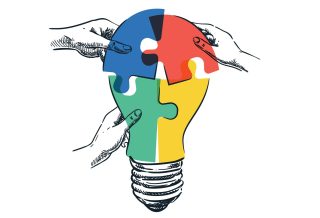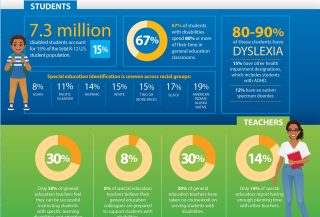FOCUS
How understanding the brain improves educator learning
By Margaret Lee
Categories: Learning designs, ResearchFebruary 2025
Read the remaining content with membership access. Join or log in below to continue.
Sed ut perspiciatis unde omnis iste natus error sit voluptatem accusantium doloremque laudantium, totam rem aperiam, eaque ipsa quae ab illo inventore veritatis et quasi architecto beatae vitae dicta sunt explicabo. Nemo enim ipsam voluptatem quia voluptas sit aspernatur aut odit aut fugit, sed quia consequuntur magni dolores eos qui ratione voluptatem sequi nesciunt. Neque porro quisquam est, qui dolorem ipsum quia dolor sit amet, consectetur, adipisci velit, sed quia non numquam eius modi tempora incidunt ut labore et dolore magnam aliquam quaerat voluptatem.
References
Ausubel, D.P. (1968). Educational psychology: A cognitive view. Holt, Rinehart and Winston.
Berlin, R. & Heal, J. (2022, March 23). Why time is a teacher’s greatest commodity … and what to do … Learning & the Brain. learningandthebrain.com/blog/finding-and-prioritizing-opportunities-for-effortful-thinking/
Heal, J. & Hendrick, C. (2025). How teaching & learning happens [Learning module]. Academica. academica-group.com/en/how-teaching-and-learning-happens-e-learning-course
Kirschner, P. & Hendrick, C. (2024). How learning happens: Seminal works in educational psychology and what they mean in practice (2nd ed). Routledge.
Kirschner, P., Hendrick, C., & Heal, J. (2022). How teaching happens: Seminal works in teaching and teacher effectiveness and what they mean in practice. Routledge.
Learning Forward (2022). Standards for Professional Learning.
Mueller, P.A. & Oppenheimer, D.M. (2014). The pen is mightier than the keyboard: Advantages of longhand over laptop note taking. Psychological Science, 25(6), 1159-1168.
Richter, E. & Richter, D. (2024). Measuring the quality of teacher professional development: A large-scale validation study of an 18-item instrument for daily use. Studies in Educational Evaluation, 81, Article 101357.
Rosenshine, B. (2012). Principles of instruction: Research-based strategies that all teachers should know. American Educator, 36(1), 12-39.
Sweller, J. (2011). Cognitive load theory. In J.P. Mestre & B.H. Ross (Eds.), Psychology of learning and motivation: Cognition in education (Vol. 55, pp. 37-76). Academic Press.
Willingham, D.T. (2017). A mental model of the learner: Teaching the basic science of educational psychology to future teachers. Mind, Brain, and Education, 11(4), 166-175.

Margaret (Meg) Lee, a public school educator for more than 25 years, is a forerunner in implementing evidence-informed practice in schools and districts. She directs professional learning and induction in a Maryland district, is a core teacher for learning science and advisor for professional learning at Academica University of Applied Sciences in Amsterdam, is the author of Mindsets for Parents: Strategies to Encourage Growth Mindsets in Kids (2nd ed.), and consults with districts focused on elevating practice through learning science.
Categories: Learning designs, Research
Recent Issues
NAVIGATING NEW ROLES
April 2025
Whether you’re new to your role or supporting others who are new,...
LEARNING DESIGNS
February 2025
How we learn influences what we learn. This issue shares essential...
BUILDING BRIDGES
December 2024
Students benefit when educators bridge the continuum of professional...
CURRICULUM-BASED PROFESSIONAL LEARNING
October 2024
High-quality curriculum requires skilled educators to put it into...











